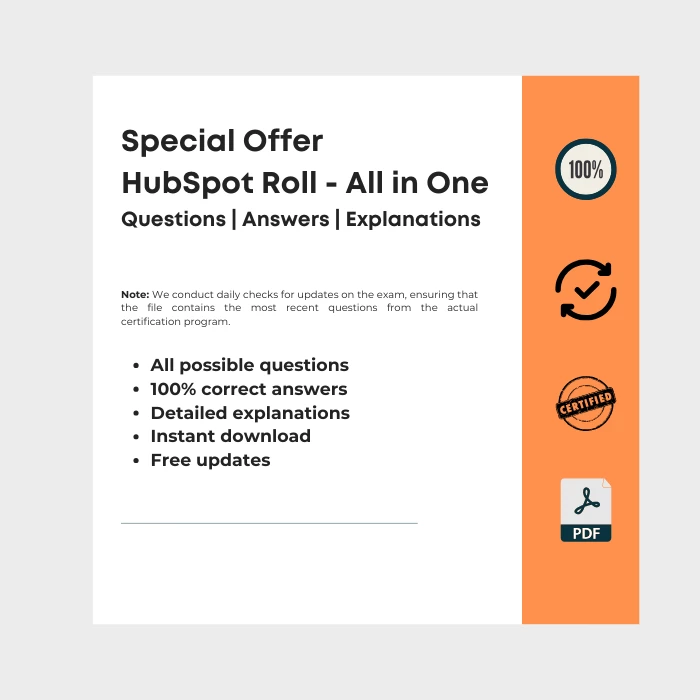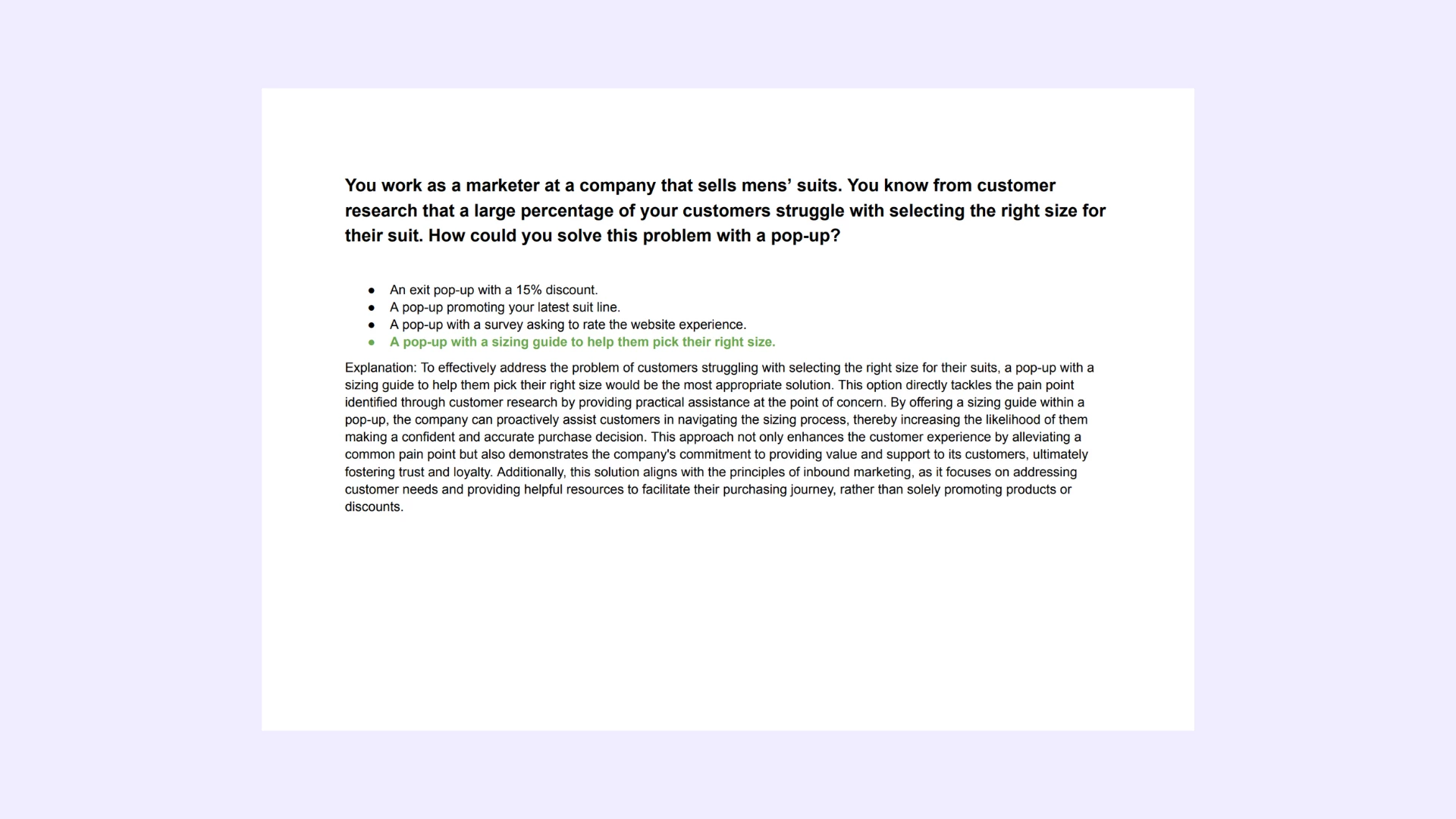When performing keyword research, how can you determine which keywords you should create content for?
Define topics that you want your business to be known for, then find long-tail keywords within that topic area.
Perform a competitor analysis to see what keywords your competitors are ranking for.
Identify keywords that have the highest amount of search volume, then create as much content as you can on them.
A & B

HubSpot Roll. Includes Answers for Every Real HubSpot Certification Exam.
All-in-One: Get all HubSpot exams answers with explanations in one bundle. This package includes answers for every current HubSpot certification. Regular updates to reflect the latest exam version. -> See what's included.


Need a single cerification exam answers? Check out our -> list of certification exams answer keys. Learn Smarter. Obtain or Renew your certificates with peace of mind!
Explanation: When performing keyword research, how can you determine which keywords you should create content for?
Explanation: The correct answer is: **A & B**. When performing keyword research, it's essential to consider both defining topics that align with your business objectives and analyzing competitor keywords. By defining topics relevant to your business, you can identify overarching themes or subject areas that you want your brand to be associated with and known for. Within these topics, finding long-tail keywords allows you to target specific queries or user intents related to those topics, optimizing your content for more niche and targeted search traffic. Additionally, performing a competitor analysis helps you gain insights into the keywords your competitors are ranking for, enabling you to identify potential gaps or opportunities and refine your own keyword strategy accordingly. By combining these approaches—defining topics aligned with your business goals and analyzing competitor keywords—you can develop a comprehensive keyword strategy that maximizes your content's relevance, visibility, and impact in search engine results, ultimately driving organic traffic and achieving your SEO objectives. Therefore, selecting options A & B provides a holistic approach to determining which keywords to create content for, leveraging both internal business priorities and external competitive insights to inform your keyword targeting strategy effectively.

Special Bundle Offer HubSpot Roll. All in One
Note: We conduct daily checks for updates on the exam, ensuring that the file contains the most recent questions from the actual certification program.
Questions | Answers | Explanations. FREE Updates.
You may also be interested:
- Special HubSpot bundle offer - all HubSpot exams in one
- HubSpot CMS for develpers certification exam answers
- HubSpot CMS for develpers II certification exam answers
- HubSpot content hub for marketers certification exam answers
- HubSpot content marketing certification exam answers
- HubSpot contextual marketing certification exam answers
- HubSpot digital advertising certification exam answers
- HubSpot digital marketing certification exam answers
- HubSpot email marketing certification exam answers
- HubSpot frictionless sales certification exam answers
- HubSpot growth driven design certification exam answers
- HubSpot inbound certification exam answers
- HubSpot inbound marketing certification exam answers
- HubSpot inbound marketing optimization certification exam answers
- HubSpot inbound sales certification exam answers
- HubSpot integrating with HubSpot I foundations certification exam answers
- HubSpot marketing hub software certification exam answers
- HubSpot reporting certification exam answers
- HubSpot revenue operations certification exam answers
- HubSpot sales enablement certification exam answers
- HubSpot sales hub software certification exam answers
- HubSpot sales management certification exam answers
- HubSpot sales software certification exam answers
- HubSpot seo certification exam answers
- HubSpot seo II certification exam answers
- HubSpot service hub software certification exam answers
- HubSpot social media marketing certification exam answers
- HubSpot social media marketing II certification exam answers